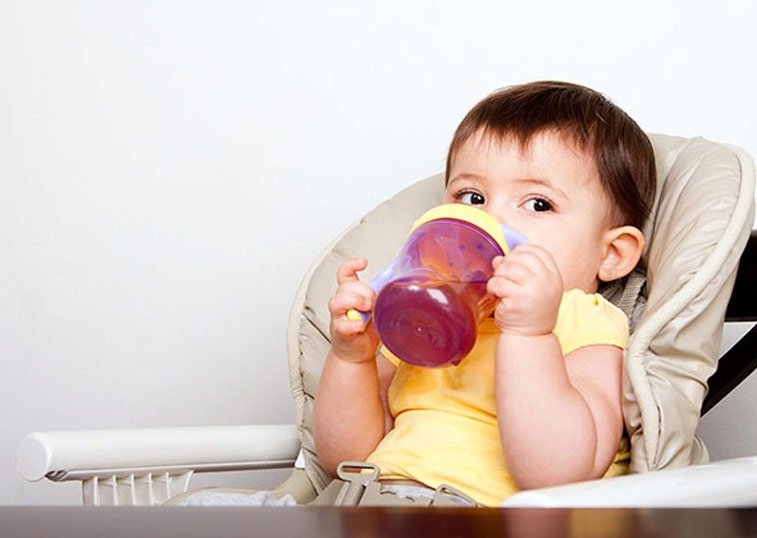Babies can have an allergy or intolerance to any food, but the vast majority have reactions to these common foods: milk, eggs, soy, wheat and nuts.
A reaction to cow’s milk can be difficult to figure out in your baby; other reactions are instant and more severe. Some babies when exposed to milk will have vomiting or diarrhea. Others may cry, have gas or blood in the stool, or seem very fussy. Other babies may get eczema rashes. More extreme reactions involve hives, swelling of the face/airway with wheezing, coughing or drooling. This is a medical emergency and you should seek medical care right away. You can give Benadryl or other antihistamine in this situation as well.
Having an intolerance or sensitivity to milk as an infant doesn’t necessarily mean he or she will have a true milk allergy going forward. Many babies outgrow this intolerance and do fine when milk is introduced when they are older. Breastfeeding your baby is believed to be the best way to prevent a cow milk allergy. If you suspect your baby is reacting to milk, inform your pediatrician so you can formulate a plan.
Breast milk
Breastfeeding moms can try eliminating dairy from the diet. You will usually notice an immediate change in baby. If you continue doing this, make sure you are getting adequate vitamin D and calcium, even if this means taking a supplement. Then, as guided by your doctor, you can usually slowly re-introduce milk around age 12 months.
Formula
You will want to avoid any cow-milk based formula. Some babies who react to milk will also react to soy, but you can try a soy based formula and monitor. There are special formulas called elemental formulas that pediatricians can prescribe. Sometimes babies will need to be on these until age 1.
Children under 1 year
When a milk allergy is suspected, a good first litmus test is to eliminate milk products from the diet and monitor for improvement. This is sometimes followed by a reintroduction of milk. This should be done with your pediatrician or allergist. Kids this age will also need to avoid foods that contain milk such as ice cream, butter, cheese or yogurt.
There are milk substitutes like almond or rice milk. It is important to ensure your child is getting adequate vitamin D and calcium. If the milk substitute product you are using isn’t fortified, a daily supplement is recommended. Always remember to inform other caregivers/babysitters of the milk allergy. With a true allergy, even a small amount can cause a big reaction.
…
Posted In Children's, Digestive Health, Health Information, Nutrition, Parenting
